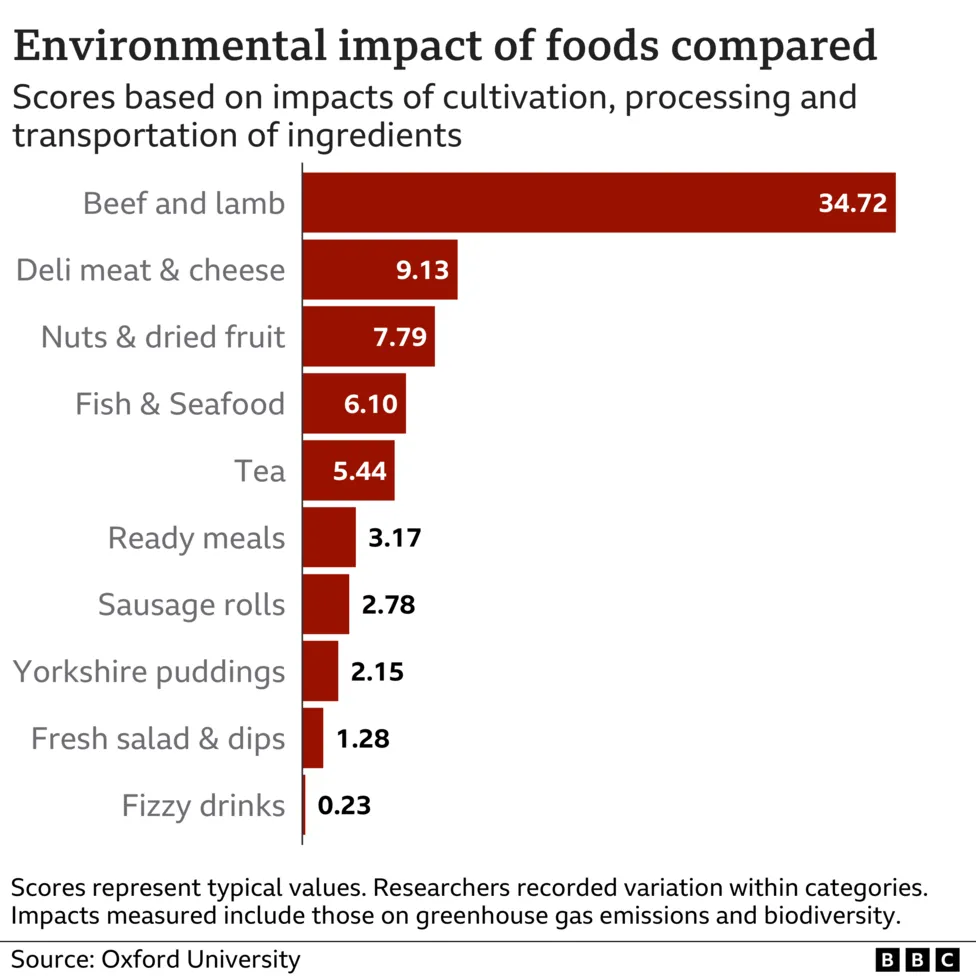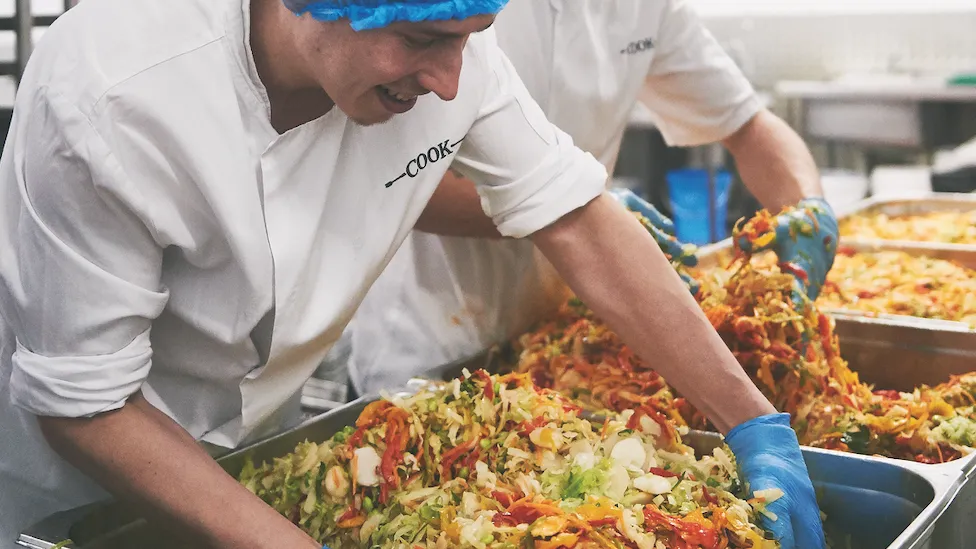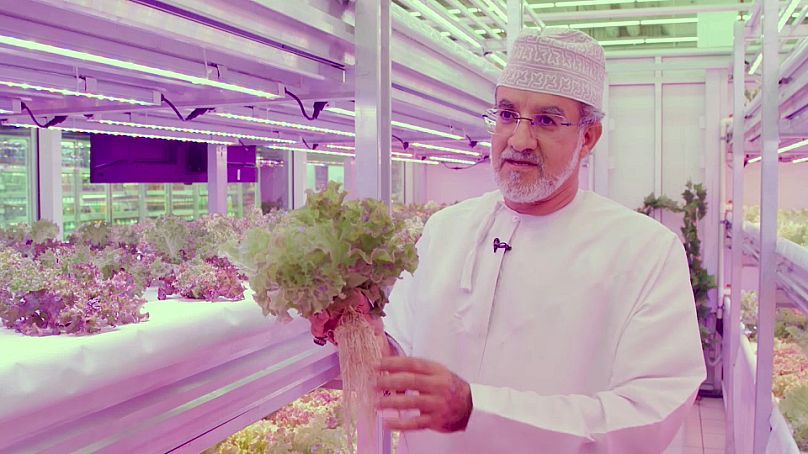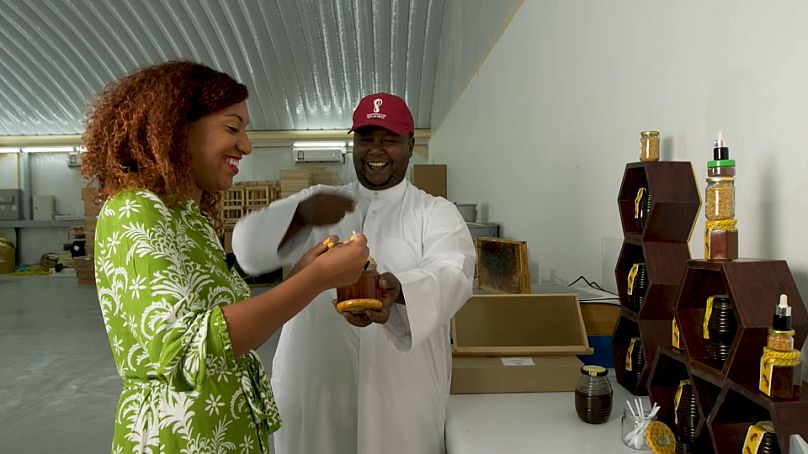
Supermarket shoppers could soon be checking the environmental impact of food before putting it in their trolleys, thanks to new research.
Reliable information of this kind hasn’t been available.
That’s because UK manufacturers only have to list their main ingredients, and that’s by percentage, not amount.
Scientists have overcome the problem by using public databases to estimate the composition of thousands of food products and their impact.
Many consumers want to know how their weekly food shop affects the planet, even though rising prices will likely be a more immediate concern for most.
Prof Peter Scarborough from Oxford University told BBC News he hopes that the research leads to an eco-labelling system for customers, but he believes that the bigger impact would come if the food industry uses it to cut its environmental footprint.
He said the food industry has also been “crying out” for the new tool and that the algorithm is already being used by some manufacturers and caterers to make their meals more sustainable.
“It fills a huge gap. Manufacturers, caterers and retailers have targets for reaching net zero [emissions] and they don’t have the tools they need to get there.”
“Now they have this data, and some of them are talking to us about things they can do to help people move towards more sustainable food purchasing. The data could help manufacturers adjust their formulations.”

The analysis has limits. Ingredient lists don’t tend to show sourcing information such as country of origin or agricultural production method. But Dr Mike Clark, who led the research at Oxford University, called the tool “a significant step towards providing information that could enable informed decision-making”.
The Oxford team estimated the composition of 57,000 foods and drinks in supermarkets in the UK and Ireland. It then assessed the impact of growing methods, processing and transport, against key environmental measures including greenhouse gas emissions and impacts on nature.
The team developed an algorithm to calculate an eco-score for the environmental impact of individual food and drink products.
Catering firm Compass Group began working with the researchers in January.
Its Culinary Director for Business and Industry Ryan Holmes, told BBC News that use of the algorithm “made us think about how we approach sustainability within the workplace” as the company sought to achieve net zero emissions by 2030.
He said the company took out some meat, increased proteins from other sources such as lentils and used more whole grains and vegetables and obtained a better score for many of its meal options for staff canteens.
Meat and dairy score high
Under the algorithm, the higher the score, the higher the environmental impact. As expected, foods containing more meat and dairy score much higher than those with more plant-based ingredients. By contrast, many meat alternatives such as plant-based sausages or burgers, had between a fifth and less than a tenth of the environmental impact of meat-based equivalents.
But there was also wide variation within specific categories.
For example, the highest-impact pork sausage scored about a third higher than the least impactful. And the impact of biscuits rose the more chocolate they contained, showing that small recipe changes could make big differences, according to Prof Scarborough.
“If you look at the government strategy on achieving net zero [emissions by 2050] around food systems, they are not measuring the actual greenhouse gas emissions, instead the recommendation is to reduce meat consumption.
“That’s OK, because meat has the biggest greenhouse gas emissions, but you miss a massive amount in multi-ingredient foods which had previously had no reduction targets based on them whatsoever.”

COOK, a Kent-based frozen food producer looking to diversify away from meat, has also worked with the researchers. It wants to explore whether measures like putting eco-labels on its products would help customers embrace a more sustainable diet.
“The tool could help us by ensuring that as we are developing new recipes there is a delicious option for someone who is actively looking to reduce their environmental impact through what they eat,” said Andy Stephens, COOK’s head of sustainable food.
The researchers don’t foresee eco-labelling becoming compulsory in the near future. They want firms to adopt it voluntarily, something they believe would lead them to compete over the sustainability of their food and drink products.
A spokesperson for the Department for Environment, Food and Rural Affairs welcomed the initiative.
“We want to give everyone the information to make healthier, greener or more sustainable choices with the food they buy, if they want to. Voluntary industry schemes are really positive and through our Food Strategy we’re also looking at how we can better support them in future.”
The research has been published in the Proceedings of the National Academy of Sciences.
Source BBC




